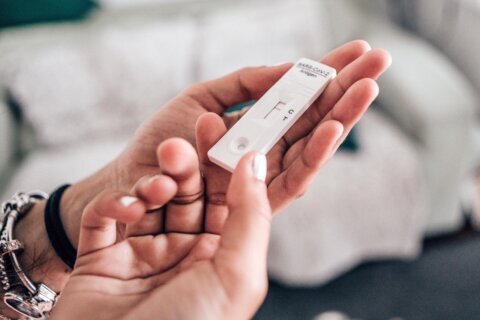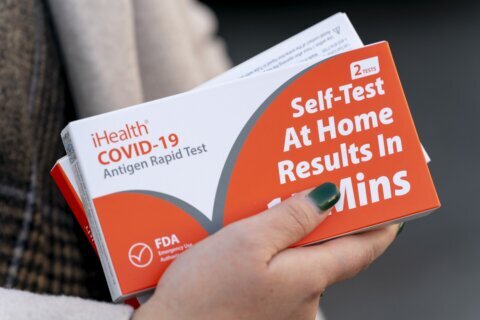In mid-December — closing out notorious 2020 — COVID-19 vaccination first became available outside of clinical trials. Vaccines brought both hope and questions for a pandemic-stricken public. Since then, a lot has been learned as evidence on safety and effectiveness of currently available vaccines continues to build.
Below, infectious disease and vaccine experts provide the latest information and suggest what to ask your doctor about COVID-19 vaccination:
[Read: Vaccine Study Volunteers: Taking Their Shot to Beat COVID-19.]
Availability
Which COVID-19 vaccines are currently available in the U.S.?
Three vaccines are currently offered in the U.S. All were initially allowed under emergency use authorization by the Food and Drug Administration as a public health measure.
— The Pfizer vaccine, given in two initial doses, is the first to receive full FDA authorization (on August 23). It uses mRNA technology to stimulate an immune response against the novel coronavirus.
— The Moderna vaccine, given in two doses, is also an mRNA vaccine. Moderna has submitted an application for full FDA approval.
— The Johnson & Johnson/Janssen vaccine is an adenovirus vector vaccine. The J&J vaccine is given in a single dose.
Should you receive the COVID-19 if you haven’t already done so?
In contrast to early shortages and restrictions, COVID-19 vaccination is now widely available in the U.S., so you don’t have to wait.
“Getting the vaccine is going to protect yourself and your family,” Dr. Tom Frieden, president and CEO of Resolve to Save Lives, an initiative of Vital Strategies, told U.S. News in January. For most people, the benefits of receiving the COVID-19 vaccine far outweigh the risks, said Frieden, a former director of the Centers for Disease Control and Prevention. As the pandemic continues on into fall 2021, that still holds true.
Effectiveness
How effective is the vaccine?
Nearly 280,000 lives were saved and as many as 1.25 million hospitalizations avoided thanks to the rapid U.S vaccination rollout, according to a July 2021 Commonwealth Fund issue brief. But now, the quickly spreading Delta variant is once again filling hospital intensive care units, highlighting the need for ongoing efforts and continued vigilance against COVID-19.
“These are highly efficacious vaccines,” says Dr. Kathleen Neuzil, a professor in vaccinology and director of the Center for Vaccine Development and Global Health at the University of Maryland School of Medicine. “They work, and they work very well.” Vaccines can keep you from getting sick and potentially be lifesaving.
What are some key benefits of COVID-19 vaccination?
Being vaccinated against COVID-19 offers these benefits:
— Greatly reduces the risk of COVID-19 infection.
— Greatly reduces the risk of hospitalization, serious illness or death from COVID-19. Among older adults — a group that’s highly vulnerable to COVID-19 — effectiveness of full vaccination for preventing hospitalization ranged between 84% to 96% depending on the vaccine, according to a study in the August 13 Morbidity and Mortality Weekly Report .
— Offers protection against the Delta variant and other variants.
— Contributes to herd immunity, which helps protect people who can’t be vaccinated.
Safety/Side Effects
What are my chances of having a severe allergic reaction?
Anaphylaxis — severe, life-threatening reactions that occur in rare cases after vaccination — has occurred in an about two to five people per million people after COVID-19 vaccinated in the U.S., according to the latest CDC figures. Severe allergic reactions including anaphylaxis can occur after any type of vaccination, the CDC website points out.
How can I safely receive the COVID-19 vaccine if I’ve had allergic reactions to other vaccines?
Whether you get your COVID-19 vaccine at a pharmacy or your doctor’s office, you want to get your vaccine where they can treat anaphylaxis, although it’s rare, says Dr. Tom Kenyon, chief health officer for Project HOPE and a former director of the CDC’s Center for Global Health. “So you need to be where there is a trained nurse or doctor, plus medications and equipment needed to treat such a reaction,” he says. Epinephrine injections are the first line of treatment for an anaphylactic reaction.
“Certainly, for people with a history of allergic reactions, it would be good for them to talk with their doctor so they can clearly understand the risk and perhaps the best place to get vaccinated,” Neuzil says. “Perhaps they would feel more comfortable in a medical setting.”
If you experienced an immediate allergic reaction — even if not severe — when receiving the first dose of the COVID-19 vaccine, you should not get the second dose, the CDC warns. Immediate allergic reactions may include hives, swelling and wheezing or respiratory distress within four hours after getting vaccinated.
What serious vaccine complications have occurred?
While noting that nearly 375 million doses of the COVID-19 vaccine have been safely given in the U.S. up through August 2021, the CDC lists several rare but serious safety problems:
— The relatively small number of people who have suffered anaphylaxis as a severe allergic reaction to the vaccine.
— Blood clots with low platelets, called thrombosis with thrombocytopenia, is a rare side effect that has happened after receiving the Johnson & Johnson/Janssen vaccine, affecting about seven per 1 million vaccinated women between the ages of 18 and 49. It’s still rarer in women ages 50 and older or in men.
— Myocarditis and pericarditis — inflammation of the heart and the heart lining — are a rare side effect in young adults and adolescents. These infrequent cases are most often reported after receiving the second dose of either the Pfizer or Moderna vaccines.
However, COVID-19 vaccination benefits outweigh the risks, the CDC emphasizes.
Is it possible to get COVID-19 from the vaccine?
“Absolutely not,” Frieden says. “You could never get COVID from the COVID vaccine.” Both the Moderna and Pfizer-BioNTech versions use mRNA technology to “teach” your body how to recognize and make an immune response against the coronavirus, he explains. The mRNA technology is “stunningly effective,” he adds. “Essentially, it’s like an email sent to your immune system that shows it a picture of what the COVID virus looks like, and gives it a recipe for how to kill the virus where it comes.” Then, he says, like a deleted email, the message disappears without leaving a trace.
[See: Fear, Courage, Grit: Meet More Than 50 ‘Hospital Heroes’ in Pictures.]
What are common vaccine side effects?
For both vaccines, arm pain is a common local reaction, typically worse after the second dose, Neuzil says. (Arm pain is a common side effect of vaccination in general, not just with the COVID vaccine.) “Then, a smaller percentage of people get some systemic reactions that are generally self-limited to a day, sometimes two days.” According to the FDA, the most commonly reported side effects are:
— Fatigue.
— Chills.
— Headache.
— Muscle or joint pain.
— Fever.
What can I do to minimize vaccine after-effects?
Consider asking to have the vaccine given in your nondominant arm, so you’re not bothered as much by tenderness while going about routine activities, Neuzil suggests.
At home, have over-the-counter medication on hand so you can treat muscle soreness, fever or other common vaccine side effects. “People just need to be prepared with ibuprofen or acetaminophen,” Neuzil says. “There’s nothing wrong with taking it and there’s no reason to wait and suffer.”
Variants/Breakthrough/Boosters
Are vaccines effective against the Delta variant?
The Delta variant is now the predominant virus variant in the U.S. Although they were developed before Delta emerged, COVID-19 vaccines used in the U.S. are effective against it, research shows. That said, vaccines now being developed to specifically target the Delta variant are going into clinical trials.
Can fully vaccinated people get breakthrough COVID-19?
Yes, although infection is much less common after vaccination and any resulting symptoms tend to be milder and far less likely to result in hospitalization or death. “When we say ‘breakthrough cases,’ we really mean somebody who’s been vaccinated still gets COVID,” Neuzil says. “We expected that to happen to some degree. It even happened in the clinical trials. We didn’t have 100% efficacy.”
Why might breakthrough causes occur?
COVID-19 may affect people who are fully vaccinated (but haven’t yet received a third or booster dose) for a number of reasons, Neuzil says. Having a weakened immune system or experiencing an overwhelming exposure to COVID-19 could play a role. “Maybe it’s from close contact with somebody who’s shedding a lot of virus,” she says. “Perhaps it’s the fact that we all took our masks off for a couple weeks. So, we were doing these trials of the vaccine when we were all social distancing and wearing masks. And, now we may be seeing more vaccinated people get infected because we’re being exposed a lot more frequently.”
What is the current status of COVID-19 third/booster doses?
For now, an additional (third) dose of the Pfizer or Moderna vaccine is recommended only for people with moderate to severe immunosuppression, at least 28 days after they’ve received the second of the standard two-dose series.
The CDC and other vaccine experts have been careful to differentiate between a third COVID-19 vaccine and a booster shot, Neuzil notes.
“If I as a healthy person get two doses of an mRNA vaccine, I have very good antibody levels and I am protected from the disease at a very high level of protection,” she explains. “An immunosuppressed person often never gets there, many times — people who have had transplants, for example — after two doses. After three doses, more of them get there.”
For a healthy person, a booster dose means: “I got to a really high immunity level. It started to fade in six to eight months, or a year, and so then I give myself a booster to recall that immunity and boost that antibody level back up,” Neuzil says. “For an immunosuppressed person, they need that third dose to even get them to that original protective level.”
Soon, booster doses will become available for the general public. Starting the week of Sept. 20, the CDC plans to offer booster shots to fully vaccinated individuals at least eight months after their second dose of the Pfizer or Moderna vaccine (received during the initial vaccine rollout). The CDC also expects to recommend a booster for those who’ve received the single J&J vaccine dose, after evaluating data in hand.
Equity
Does everyone have equal access to vaccination?
Widespread inequities in COVID-19 vaccination rates exist, found a study of more than 1,100 neighborhoods within the nine largest U.S. cities and surrounding counties. “COVID-19 vaccination rates were disproportionately high in communities with lower burdens of this disease,” according to the study released Sept. 3 in the journal JAMA Health Forum. The neighborhoods with higher vaccination rates had a lower proportion of Black and Hispanic or Latino residents, higher average incomes and lower poverty rates.
As of Sept. 4, 2021, CDC reported that race/ethnicity was known for 59% of people who had received at least one vaccine dose of the vaccine. Of those, 60.5% were white, 10% were Black, 17% were Hispanic, 6% were Asian, slightly more than 1% were American Indian or Alaska Native. About 0.5% of those who received at least one dose were Native Hawaiian or Other Pacific Islander and about 5% reported multiple or other race. On the other hand, recent vaccinations are reaching increasing shares of underrepresented populations.
What could improve vaccination equity?
Evidence shows that people who have had the opportunity to discuss the COVID-19 vaccine with their health care providers are more likely to be vaccinated, says Dr. Sheila Young, an assistant professor in the department of surgery at Charles R. Drew University College of Medicine in Los Angeles, and director of CDU’s premedical academy and the enhanced post-baccalaureate program. “However, we have to understand that a large percentage of individuals living in South LA don’t have access to a primary care provider.”
In general, Young says, “It really does take that patient provider having that intimate discussion and going through questions and concerns that helps facilitate the care that people need.”
To facilitate access to vaccination, testing and factual information on COVID-19, Young is active in CDU’s street medicine program, which works with multiple partners including local health departments and vaccine providers like Rite Aid. “It’s really a community, on-the-ground effort,” she says.
It’s important to understand why people may hesitate to get vaccinated, and not point fingers or make assumptions, Young emphasizes. “We have to stop the blame game and figure out a strategy that really works moving forward.”
[READ: How COVID-19 Vaccination Improved Nurses’ Workdays.]
Children
What is the minimum age for children to receive COVID-19 vaccination?
As of September 2021, children ages 12 and older are eligible for vaccination with the Pfizer COVID-19 vaccine. Clinical trials including children, at gradually younger ages, were conducted following initial vaccination studies for adults, to ensure safety and efficacy in kids. The CDC now recommends that everyone ages 12 and upward get COVID-19 vaccination to help protect against COVID-19. (The minimum age for the Moderna vaccine is 18.)
How are adolescents who’ve been vaccinated against COVID-19 doing so far?
Among some 3,700 adolescents between 12 and 17 years old, those who received two COVID-19 vaccinations had an immune response similar to adults, in a study released August 11 in the New England Journal of Medicine. While no cases of COVID-19 occurred in those who were vaccinated, four cases of COVID-19 occurred in adolescents who instead received placebo injections as part of the comparison group.
What common side effects are being seen in vaccinated kids?
“Adolescents who have been vaccinated have done well,” says Dr. Diego Hijano, a pediatric infectious disease specialist at St. Jude Children’s Research Hospital in Memphis, Tennessee. “The preliminary information on the safety and efficacy of the vaccines has shown similar reactions to what we have seen in others. So they mostly get local signs and symptoms with the first dose: pain in the arm, swelling, redness. Then, with the second dose, they can get more of the systemic reactions like fever, chills, body aches and fatigue.”
What about more serious vaccine side effects in kids?
Myocarditis is a rare but concerning vaccine side effect. Compared with the general population, “The only different thing that we have observed — and we were observing with young adults already — is the very rare but the significant increase of inflammation of the heart and the pericardium (lining of the heart),” Hijano says. “That usually has been seen in males between 16 and 30 years of age after the second dose.”
How have young people with the (rare) myocarditis side effect fared?
Fortunately, most cases have been mild. At the time of the last review by the CDC, over 80% have fully recovered. “At this point, there is no severe event or any death-related event,” Hijano says. “For those that we have data, it was mild to moderate and all fully recovered,” he says. Although data isn’t yet available for all patients affected, he adds, it’s expected that they’ve already or eventually will fully recover.
How important is it for eligible children to be vaccinated?
Kids who can be vaccinated, should. “Definitely, the risk-benefits continue to heavily favor vaccination,” Hijano says. “We continue to see that this age group gets infected and gets COVID. They can get severe COVID. With the Delta variant in the last four to six weeks, we continue to see a rise in COVID-19 cases in children. And that rise has led to more hospitalizations, more severe disease and more complications.”
Although many young people who get COVID-19 initially have mild disease, some continue to have symptoms that qualify them as COVID long-haulers, Hijano notes. “That really can significantly affect their daily lives. Headaches, fatigue, continued loss of the sense of taste or smell, pain: Those are the things that are commonly described and teenagers are not excluded from that.”
What should parents understand about kids, COVID-19 and vaccination?
“Things have changed over time and now we have a different reality,” Hijano says. “We cannot keep thinking that COVID does not affect kids; that kids are going to do fine. Kids are being hospitalized every day, across the country. But we have good tools to protect them.” Vaccination, testing and masking are top tools.
With schools now in session, and parents wondering how to keep kids safe, he says, “The best thing you can do if you have somebody that is 12 or older is get them vaccinated.”
[SEE: What to Say to Friends or Family Members Who Hesitate to Wear a Mask.]
Pregnancy/Fertility
Should I have the vaccine if I’m pregnant?
Anyone who is pregnant, considering becoming pregnant or breastfeeding should receive the COVID-19 vaccine. “The vaccines are safe and effective, and it has never been more urgent to increase vaccinations as we face the highly transmissible Delta variant and see severe outcomes from COVID-19 among unvaccinated pregnant people,” CDC Director Dr. Rochelle Walensky said in an August 11 media statement.
Similarly, the American College of Obstetricians and Gynecologists revised previous advice to consider and discuss vaccination with health care providers in pregnancy. Now, according to its updated July 31 statement, “ACOG recommends that all eligible persons, including pregnant and lactating individuals, receive a COVID-19 vaccine or vaccine series.”
Are rumors of female infertility related to the COVID-19 vaccine true?
One widely spread myth is that female infertility is a risk after vaccination. “There is absolutely no basis to that rumor,” Neuzil says. Evidence continues to refute the infertility myth.
Parents express similar worries. “There’s a lot of misinformation out there,” Hijano says. “I hear a lot of parents’ concern about infertility for their daughters. And that’s really a myth. There is no evidence that the vaccines cause infertility. I have two daughters. One is already vaccinated.” (His other daughter is too young.)
Resources
Where can I find reliable information on COVID-19 and vaccines?
For consumer-friendly facts on COVID-19 in general, cdc.gov offers a wealth of information. To get the latest status on vaccination in your area, reach out to your state or county health department. The National Governors Association provides links to updated vaccine information for U.S. states and territories on its website.
More from U.S. News
What Are the Symptoms of Coronavirus?
Questions Doctors Wish Their Patients Would Ask
Questions to Ask Your Doctor About the COVID-19 Vaccine originally appeared on usnews.com
Update 09/08/21: This story was previously published at an earlier date and has been updated with new information.







